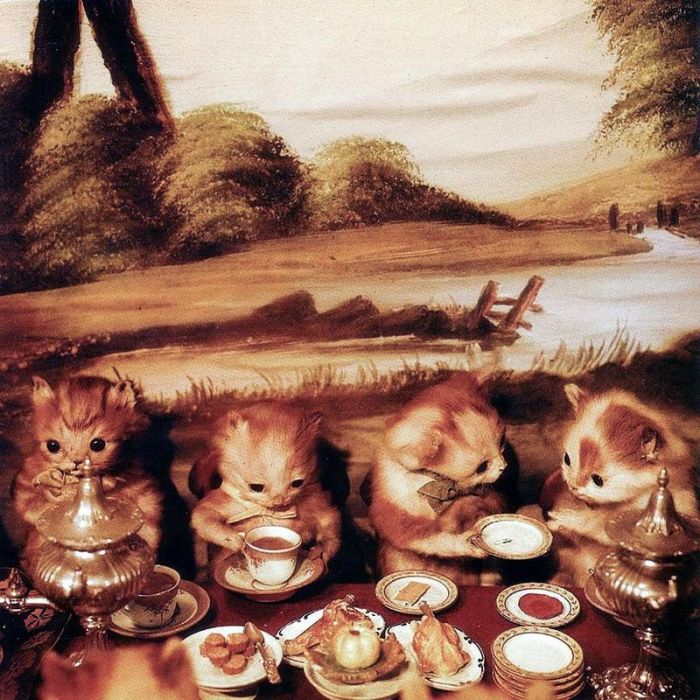Low Birth Weight by Piano Magic (Review)

The sleeve art of Low Birth Weight seems relatively humorous and innocent, even a bit cute — kittens sitting down to have tea and snacks, rabbits teaching school, a pair of squirrels enjoying some wine and a cigar. Then you realize that these furry creatures are actually stuffed and mounted. Suddenly, those innocent images that looked like they belonged in a Hans Christian Anderson tale now look like they came from a nature film by David Lynch.
As such, the cover art is quite appropriate for the music. Sounding like pastoral English folk songs run through the requisite shoegazer and 4AD filters, Piano Magic’s music is as spectral and eerie as it is beautiful and enchanting, like walking through a toy store in Twin Peaks, or spending the night in a haunted Victorian manor.
I first heard Piano Magic on their release for Darla’s Bliss-Out Series. It was a gently soothing album of gentle ambience and Victorian harpsichords, but the songs sounded like they came from the stateroom of a luxury liner lost in the Bermuda Triangle. On Low Birth Weight, the nautical themes are gone, but those disturbingly comforting sounds and vocals remain.
During “Snowfall Soon,” Caroline Potter’s barely-there vocals echo out half-realized lyrical fragments like “Goodbye is nothing new/But it’s last breath when said by you/And this world shrinks to a room/Weather inside, snowfall soon” that peek out from behind an MBV-esque curtain of noise and tribal percussion. “Dark Secrets Look For Light” tells of a man who ridicules his wife for being ugly; when he finds that she’s hung herself, he blinds himself with a white-hot poker. And even a love song, like “Snow Dreams,” has a wintry edge to it, with lyrics like “The sky is a grey flint/From coast to coast/With birds frozen in” set against lethargic guitars, a ghostly theremin, and gentle vibes.
The vocals work especially well on this album. Sounding like they were recorded on a 19th century victrola, they have a ghostly, wispy sound to them, even on the handful of songs featuring spoken word, which I’m normally not a fan of, but it works quite nicely here. It’s like you’re being read a bedtime story penned by Mervyn Peake by the ghost of your great grandmother.
The reason that Piano Magic’s “formula” is so successful (and enjoyable) is that they don’t try to force their seductive oddness on you. They don’t try to involve you in the weird stories and pastoral vistas. The music is too passive for that. Instead, they let you come in on your own volition, because they know that once you willingly listen, it’ll be that much harder for you to leave.